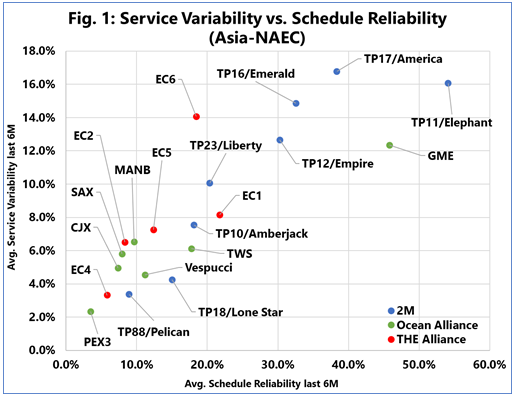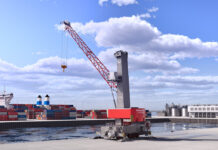
Maritime data analysis company Sea-Intelligence said that with incredibly poor schedule reliability across the entire liner shipping industry, it is often instructive to find those marginal gains: which carrier/service/port-pair offers that slightly better service level.
The Danish analysts explain, “It might be that carrier X offers a 5 percentage point advantage over the rest across a certain scope, or maybe, shipping on service ABC might get your cargo to the destination with a delay of five days, instead of 10 with the rest.”
Alan Murphy pointed out that there is, also, the added complexity of service variability.
“We define it as the difference in schedule reliability from one week to the other. The important thing about service variability during the current disruptive environment is the ability to effectively plan supply chain contingencies. For example, before considering schedule reliability, shippers would prefer a service that has a stable service level, and one that does not require exception handling in five out of the 10 weeks,” said Murphy.
Adding schedule reliability to the mix, then shippers have the following important decision to make:
Do shippers prefer a service with a middling level of schedule reliability, but one that is consistent at that level, thus minimising exception handling, or do they prefer a service that has a high level of schedule reliability in as many months as possible, but may require excessive exception handling in the months that it does drop down.
Sea-Intelligence analysed schedule reliability against service variability on the Asia-North America East Coast (NAEC) trade, over both the last six months as well as over the past two-year pandemic period.

In the ideal scenario, the service would be on the bottom right-hand side i.e. high reliability and low variability.
“We can see however, that it is not the case, and that relatively more reliable services often come with the caveat of a greater level of monthly volatility in their reliability, and hence the need for a greater level of exception handling,” noted Murphy.




